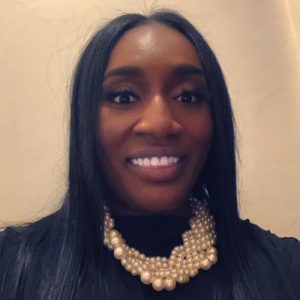
Springtide BIPOC Fellow Shares How Her Race and Faith Intersect
Cassandra Ogbevire, our 2022-2023 BIPOC Research Fellow, recently shared commentary with Sojourners Magazine, where she discussed how the findings of Navigating Injustice were reflected in her own experience as a Black Christian. Navigating Injustice explored how religious and racial identities impact mental health for young Black, Indigenous, People of Color (BIPOC), and how faith leaders can best celebrate and support the growth and development of the young BIPOC in their midst.
Read an excerpt from Cassandra’s piece below:
“Christianity is a white man’s religion,” one of my classmates said matter-of-factly during one of our classes at Spelman College. At the time, I was 19 and taken aback by her remark; I didn’t think of my faith as something that didn’t represent me. At that moment, I was forced to confront the tension found between the intersections of religion and race. How can religion reveal one’s understanding or acceptance of their racial identity?
Prior to attending seminary, I always viewed my Christian faith as tethered to my Black identity. Growing up as a first-generation Nigerian American, my parents taught me that having a relationship with God was nonnegotiable and necessary to thrive in every area of life. And in moments when I experienced racial discrimination, misogynoir, and challenging seasons of my life, my Christian faith has been there to sustain me. Spiritual practices such as praying and reading the Bible not only grounded me in my faith, but also affirmed my experiences as a Black woman and helped me regain a sense of who I am and who God is. But I knew my own experience with faith only represented one perspective on Black spirituality.
Recently, I found myself reflecting on my classmate’s comment. While serving as a research fellow at Springtide Research Institute, I worked with Nabil Tueme, Springtide’s senior research associate, on Navigating Injustice, a project that combined more than 3,000 surveys and 19 interviews from Generation Z (ages 13 to 25) on their experiences navigating race and faith.
The American Survey Center reports that Gen Z is the “least religious generation yet,” but Springtide’s study found that Black Gen Zers reported the highest rates of religiosity when compared to their non-Black peers. In 2022, 38 percent of Black Gen Zers said they attended religious services at least once a month, compared to 33 percent of their white counterparts. Hayley, a 17-year-old Black woman continues to attend her church since it provides her with opportunities to engage in community service: “A big social issue in my community is homelessness … I go out with my church to shelters on a weekly basis and we do [community service] based on our love for God and our love for God’s people.”
Springtide’s study found that over half of Black Gen Zers claim that a divine being has a plan for their lives. Caleb, a 22-year-old Black man said, “Based on my personal beliefs [as a Christian], I believe this life that we are living currently is not the end [and] it’s not everything that life is supposed to be. So [I find] comfort in knowing John 16:33, which says, ‘In this world you have many trials and sorrows, but take heart for, I have overcome the world.’”
Read Cassandra’s entire reflection, and see more findings from Navigating Injustice!

Cassandra Ogbevire
BIPOC Research Fellow



